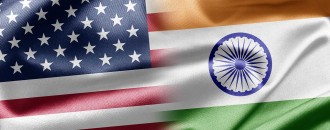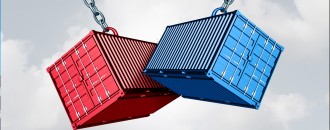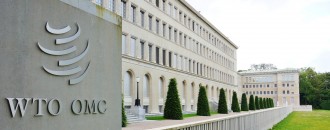
Inward focus' globalisation grips WEF; India 'bright star'
PTI
As the five-day talkathon of global elite wrapped up in freezing cold climes of Swiss Alps ends here today, world leaders foresaw a new normal for globalisation with a lot more 'inward focus' by various countries including the US, even as global economy appeared poised for a fresh growth era propelled by India and China.
With the narrative getting populated with populism and politics-driven possible 'black swans' emerging after polls in some major economies, calls grew louder for 'responsive and responsible governments' to tackle income and gender inequalities on a war footing.
While China emerged as an unlikely hero of capitalism after presenting itself as the new champion of globalisation, experts seemed to be a less convinced lot about that country becoming the new leader of global economy in place of the US.
From the impact of automation and artificial intelligence on jobs to concerns about the future of globalisation, discussions touched upon a raft of pressing issues.
At the closing plenary, award winning Pakistani documentary filmmaker Sharmeen Obaid Chinoy, who is also a co-chairman of the annual meet, said it was good to see art included in the communications in Davos, and not seen as something separate.
As the first arts leader to become co-chair, Sharmeen said her experience was that there was lot of empathy and she also could see a feeling all around that there could be much more participation from women.
Bank of America Chief Brian Moynihan, another co-chair, said he could see some ideas on how sustainable development commitments can be met by for-profit enterprises. He applauded the theme of 'responsive and responsible governments'.
Another co-chair and Save the Children International CEO Helle Thorning-Schmidt said sustainable development goals were focused extensively here at the WEF meeting and she was pleased to see business leaders showing interest.
Royal Philips CEO Frans Van Houten, who is also a co- chair, said he saw great preparedness from ministers and business leaders in discussions on what world needs to do.
Schmidt added her big realisation at Davos was economic globalisation is not working and that it needs to be fixed.
Referring to Chinese President Xi Jinping's speech, she said that she felt we were witnessing "the week when the world turned upside down".
Sharmeen said one of the greatest things about Davos is that everyone is approachable and it has become more inclusive and much more interesting.
Stating that the world today needs much more empathy, she said she has seen a lot of that, which is also her big take away from here.
Amid rising uncertainties on political as well as economic fronts in different parts of the world, India continued to be seen as "bright star" even as clamour picked up momentum for speedier reforms and decision-making process to catch up with neighbouring China.
Eminent banker Uday Kotak said India has an opportunity to be a "bright star" in such a "sober" global economic scenario.
At the concluding session today, WEF paid tribute to former Israeli President Shimon Peres who died last year.
WEF founder Klaus Schwab described Peres as a true global statesman and a person who truly embodied Davos culture.
He also remembered the day when Peres and late Palestinian leader Yasser Arafat came together on the stage at WEF Annual Meeting in Davos.
While discussions about Donald Trump's presidency in the world's largest economy and concerns over Britain's decision to leave the European Union continued to bother leaders gathered here, developmental issues also found their space, with stitching up of some partnerships, including for developing vaccines to deal with epidemics in a short time.
WEF, government think-tank NITI Aayog, the World Intellectual Property Organisation and the Cornell University have joined hands to develop an India Innovation Index to measure the performance of Indian states.
The first ranking is expected to be released at the India Economic Summit in New Delhi on October 4-6, 2017.
Jinping said that globalisation is a "double-edged" sword but cannot be blamed for the world's problems, and pushed for a greater role for emerging economies in governance of global institutions.
"Nobody will emerge as a winner in a trade war," he cautioned.






 to success.
to success.